Forza Horizon Preview: The Open Road Dream
Top UK talent and Turn 10's tech present a festival of music and open-world racing.
Forza Motorsport and Gran Turismo pride themselves on a passion for cars. Simulated handling, fastidiously recreated bodywork, under-the-hood tinkering, carefully curated car lists: they leave no stone unturned in satisfying the ownership fantasies of every car lover.
But there's one vital aspect of autophilia that these circuit racing games can't satisfy. It's the thrill of getting into your car, pointing its nose at the vanishing point, opening the throttle and seeing where it takes you. People don't just love cars because they're beautiful and fast - they love them because they hold the promise of freedom and exploration, of power over your own destiny. It's a dream no amount of laps of Silverstone or Laguna Seca can realise, and it's one that's close to my heart.
In modern gaming, that dream is best expressed by the ramshackle yet loveable Test Drive Unlimited games, with their full-size recreations of the islands of Oahu and Ibiza to cruise around. There are some fine open-world arcade racers too, especially Criterion's Burnout Paradise and Need for Speed: Hot Pursuit, but their hyperactive, drifty action racing is too far removed from reality to count as wish-fulfilment. That's why I love TDU more than it arguably deserves.
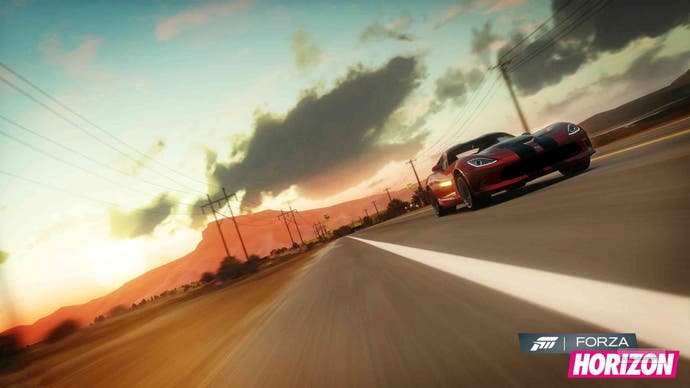
Gavin Raeburn - the former head of Codemasters Racing Studio and now co-founder of Leamington Spa's Playground Games - agrees with me. "I loved Test Drive Unlimited," he says. "It had a lot of heart." He buys into the concept as a game designer, too. "The problem with a lot of racing games as I see it is that they're very linear. Open world seems a better way of doing things like emergent gameplay. You can go wherever you want, whenever you want, and I love the idea of meaningful choice within a racing game."
Raeburn built his reputation making high-quality racing games like the Dirt and TOCA Race Driver series, but his ambitions went beyond what Codemasters had the resources to achieve. So it was that he left to start Playground with the self-described "serial entrepreneur" Trevor Williams, who'd also ended up at Codies after founding Swordfish Studios. And so it was that the pair found themselves at E3 two years ago, pitching Turn 10 - the internal Microsoft studio that makes Forza Motorsport - the game that Test Drive Unlimited should have been.
They offered, quite simply, to complete the picture: to take Forza's cars and put them on the open road. Turn 10 soon told them to start hiring and start work.
The fruit of their collaboration is Forza Horizon, an open-world racer set amid the majestic scenery of the US state of Colorado, out this October for Xbox 360. It's being built with Forza Motorsport 4's graphics and physics engine and some of its car models, but with new features, notably racing at night (the game has a full day/night cycle) and off-road.
Of course, the biggest feature of all is the freewheeling freedom offered by the Interstates, dirt tracks and winding passes of the huge, if fictionalised and condensed, map of Colorado. There'll be side missions, stunts and rewards for exploration as well as straight racing, and a GPS system controlled either by menus or Kinect voice commands will help you find your way around.
There's a further twist: to give all this unrestricted driving a focal point, it takes place around the Horizon festival, an imagined fusion of music festival and car meet where petrolheads and hedonists mix. Creative director Ralph Fulton - another Codemasters veteran - delivers the soundbite: Horizon is "the point where car culture meets youth culture and creates a place where cars belong."
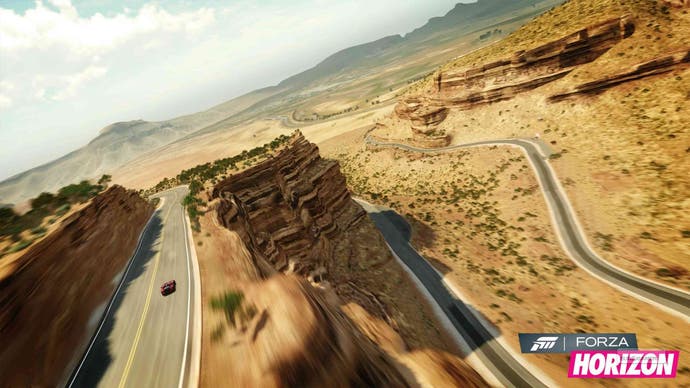
I'm not sure such a point really exists, unless it's the small-town car parks where bass bins and body kits dominate, and the youths can't afford the gleaming, aspirational supercars featured in Forza. To be honest, the festival and its clean-cut Gap-ad denizens seem like a calculating attempt to bring a touch of humanity and hip to Forza's sterile nerdsphere. But the idea does have a couple of things going for it.
Firstly, it makes sense as a structure for an open-world racer. The festival itself will be a hub, "like a town in Red Dead or Warcraft" says Fulton, from which the racing and exploration spiral out and which you'll return to buy cars, enjoy the auto show, or challenge friends to beat your times using Forza 4's excellent Rivals system. (You won't ever walk around on foot, mind.) The festival context also adds a sense of occasion to the game's racing: one event, "Mustang v. Mustang", pits your 1970s muscle car against the '40s fighter plane in a Top Gear-style challenge coloured by flares, laser lights and cheering spectators.
Secondly, this naked marketing ploy has been lent some credibility by the hiring of Rob da Bank as music supervisor and festival consultant. The eclectic DJ and founder of Bestival is curating a solid and broad-ranging soundtrack of rock, indie and dance that will play on the in-game radio stations (see 'Custom tune', left), as well as advising on the look and feel of the festival itself.
His presence is felt in the intense audio of the E3 demo, a point-to-point race through light countryside traffic. Pulsating electronica blends with a roaring flypast and the guttural growl of the game's (sadly hideous) cover star, the 2012 Dodge Viper. That's the first thing you notice, but it's soon eclipsed by Forza Horizon's sensational graphics. Playground's artists and coders have taken Turn 10's detailed car models and brilliant lighting tech and enhanced them with staggering draw distances and naturalistic time-of-day effects; this could well be one of the best-looking games of this generation.
It's certainly helped by the setting. Colorado was chosen for its fine driving roads, but also for the awe and variety of its scenery. The red-rock deserts and canyons of the Utah border open out into broad plains, then roll up into autumnal foothills and finally the craggy majesty of the Rocky Mountains.
All this beauty comes at a performance cost, however, and Forza's traditional 60 frames per second refresh has been knocked down to a (very smooth) 30. Raeburn assures me that the controller still updates 60 times a second to ensure low control latency, and that the physics simulation runs at the same rate as Forza 4's.

Which brings us to how Forza Horizon drives. The demo isn't a perfect test-bed, since the Viper is a recent addition to the game and the Playground developers aren't satisfied with how it's been tuned yet. Horizon is meant to be accessible and on default settings the handling is best described as Forza lite, or a close cousin of Project Gotham. It has livelier, quicker steering, and Forza's already-present inclination towards drifty, manageable oversteer is indulged (there's a points system that rewards crowd-pleasing, show-off driving with 'fame', the game's main currency). But it still has some bite.
Fulton insists that the simulation hasn't been cut back at all, and the only changes have been tuning the cars' set-up and tyres to make them more driveable in an open-road setting. "Configuring a car to drive when it only has to go in one direction round a track, never faces oncoming traffic, never has to take a hard right or even turn through 180 and go the other way - that's very different to configuring a car for an open world where you do have to do those things," he says. "The modifications we've made have been very minor," confirms Raeburn.
We'll need much more time with Horizon to tell how much of a simulation racer it really is. But the Forza family resemblance is plain to see in plenty of other ways, such as the use of the same car classes and performance index (no E- or F-class slowpokes, mind); the optional green line that shows ideal cornering approaches and speeds; the rewind button for unspooling crashes; a full range of customisable driver assists; a detailed in-car camera; and support for Microsoft's wireless Speed Wheel and Fanatec's superb CSR force-feedback steering wheel. You won't, however, be able to tune your cars - though you can modify their appearance - and damage is only cosmetic, too.
It's an unusually deep collaboration between developers that has seen Playground go from a standing start to an ambitious and very accomplished-looking racing game in two years flat. Forza 4's tech and assets obviously gave the new outfit a head start. What's more, Turn 10 actually shares publishing credit on the game with Microsoft Studios, and almost all of Playground's dealings are with their fellow developers rather than their corporate paymasters. "It's been great working with Turn 10 because they make games as well, so they never ask stupid questions," says Williams with obvious relief. "You can actually make progress very quickly because you're speaking the same language. It's been really refreshing."
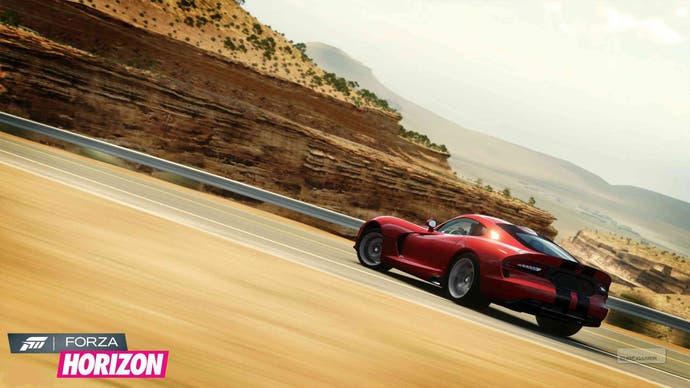
With such a cosy set-up, Playground seems well shielded from the harsh environment that has taken its toll on the UK racing game scene of late. It's no surprise that the studio is a haven for talent from the now-defunct Bizarre Creations and Black Rock, as well as taking staff on from Codemasters, Reflections, Criterion, Rockstar North, Slightly Mad and more to build a workforce of over 100. Raeburn speaks very fondly of his time at Codemasters - but he's unequivocal about his reasons for starting again.
"I guess I'm just ambitious," he says. "We wanted to achieve more than we felt we could where we were. I think we just needed a larger publisher to work for. We wanted to create a great game that as many people as possible played around the world." Fulton chimes in: "All our history, all our pedigree... That disappears after this comes out. We're concentrating on making it as good it possibly can be. We set this studio up with the goal of it being the best racing studio in the world. We're not there yet. But we're almost there."
Big talk. Big dream. Forza Horizon has a lot to prove: whether its blandly trendy high concept can gel with the game itself (Microsoft never was any good at cool), and whether an authentic yet accessible driving experience in a realistic open world is possible without too much compromise.
But the raw talent at Playground and the solid backing of Turn 10 are all up there on the screen - Forza Horizon already looks like a quality game. And if it'll let me roar through Colorado canyons under a night sky, with the radio turned up loud, the engine echoing off walls of red rock and the headlamps washing across dusty tarmac, I'm sold. Even if I have to do it in a Viper.
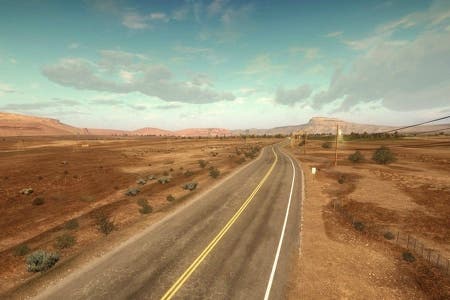


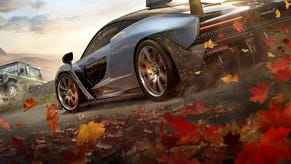
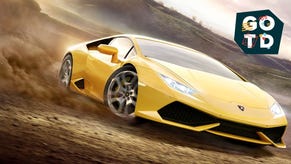
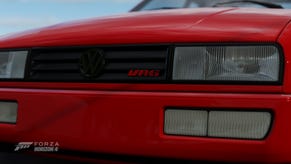
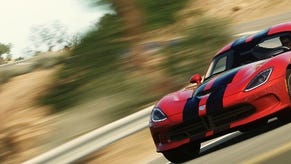
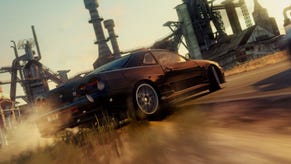
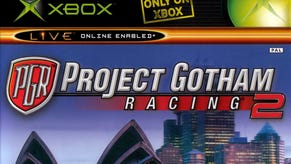
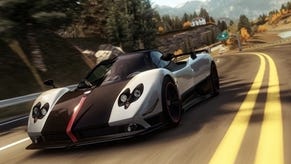



.png?width=291&height=164&fit=crop&quality=80&format=jpg&auto=webp)



